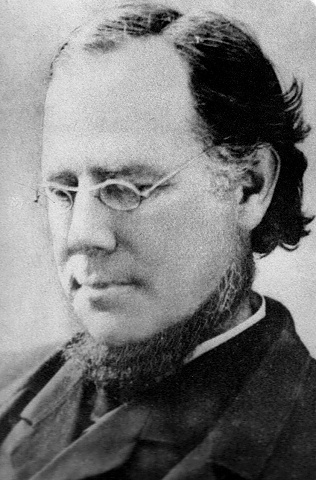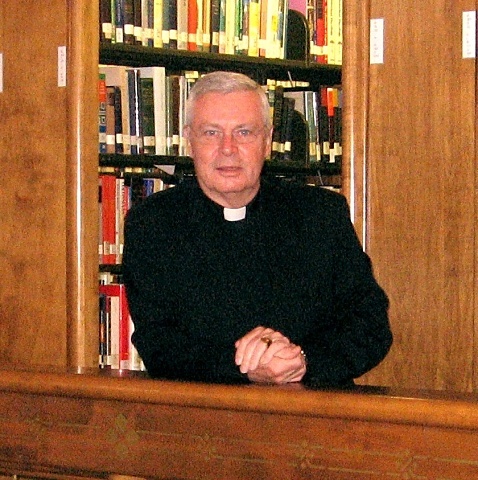November 19, 2012
This is the thirty-first in a series of previously unpublished reflections from the 1854 spiritual notebook of Paulist Founder, Servant of God Father Isaac T. Hecker. The reflection series is being made pubic in conjunction with Father Hecker’s cause for canonization. Father Paul Robichaud, CSP, Paulist historian and postulator for Father Hecker’s cause for sainthood, offers a response to Father Hecker’s reflection.

Everyone seeks perfection – the desire to know happiness – it is a void or a hunger of the soul. “Be perfect, as your Heavenly Father is perfect.” Perfection is the union of the soul with God through love. Union with God comes in degrees; it can be more or less excellent depending: either (1) to do what is required to save your soul, to follow the rules, or (2) to seek perfection through love, to strive to be holy. The first loves God as much as is required not to be disgraced, The second seeks to love God without reserve or measure, It is one thing to try and be perfect and another thing to always do what is perfect. Both seek the same end, to imitate Jesus Christ. Both keep the commandments, one works at doing it while the other does it spontaneously. It happens through practice, the more you practice the counsels, the more sure you are.
A Response from Father Paul Robichaud, CSP
Everyone wants to be happy. For most of us, we are happy when things work out. The more perfectly they work out, the happier we are. But here Father Hecker is talking about a different kind of happiness and a different kind of perfection.

That hole in our soul is a spiritual navel, an umbilical cord – it connects us to God. To the degree we use it, God’s grace floods our being and we become perfect like our heavenly Father filled with peace we are grounded and happy. To the degree we avoid it or misuse it, it dries up. Father Hecker reminds us to use it regularly. We can use it just enough to keep it functional; as he says, “to not be disgraced;” a situation where we are always trying. Or we can regularly practice the virtues of faith hope and love as well as wisdom, understanding, right judgment, courage, reverence, knowledge and wonder and awe. As Father Hecker says, when we practice them enough they become spontaneous and we become perfect.
You want to be happy? Then find the presence of God within your very being and let that light shine.
About Father Isaac Hecker’s 1854 Spiritual Notebook
Servant of God, Father Isaac Hecker wrote these spiritual notes as a young Redemptorist priest about 1854 and they have never been published. Hecker was 34 years old at the time, and had been ordained a priest for five years. He loved his work as a Catholic evangelist. The Redemptorist mission band had expanded out of the New York state area to the south and west, and the band’s national reputation grew. Hecker had begun to focus his attention on Protestants who came out to hear them. To this purpose Hecker began to write in 1854 his invitation to Protestant America to consider the Catholic Church, “Questions of the Soul” which would make him a national figure in the American church.
Hecker collected and organized these notes that include writings and stories from St. Alphonsus Liguori, the Jesuit spiritual writer Louis Lallemant and his disciple Jean Surin, the German mystic John Tauler, St. Thomas Aquinas and St. Jane de Chantal among others. These notes were a resource for retreat work and spiritual direction and show Hecker’s growing proficiency in traditional Catholic spirituality some ten years after his conversion to the Catholic faith. They are composed of short thematic reflections.